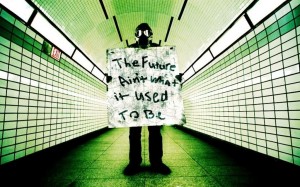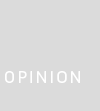The Australian Network for Art and Technology (ANAT) has been working on interdisciplinary activity since the organisation’s inception in 1988.

Image sourced from http://photobucket.com/
Our Emerging Technologies [ET] Labs (originally Summer Schools), and ANAT’s Art Science [AS] residencies have shown what is possible when you happily break down the walls of specialisation and bring seemingly varied fields together. ANAT has nurtured this way of working over the past 21 years and we see the concept of interdisciplinary reaching its limit to describe the creative practice of the future. If creative practitioners are to develop enduring revenue streams, or find a place in society for the work they produce, it will not be in a traditional artworld approach to culture and society. We are moving to a world where trans-disciplinary relationships will become more significant and ANAT is committed to making this future possible.
A trans-disciplinary approach is where a whole ecology of creative and productive activity combines to address culture, community and commerce and requires co-operation across arts, culture, science, technology and business. Each practice informs the work thorough creative process and outcomes are the products of collaboration and shared goals.
Descriptions of this future world are taxing many minds at the moment, and trans-disciplinary is just one of the terms being adopted. It can be argued that trans-disciplinary includes concepts such as extra-disciplinary and supra-disciplinary. The definitions of these terms are in flux, but ANAT has been using the following as a guide:
Extra-disciplinary: When looked at from a trans-disciplinary perspective these new, joint disciplines create an unexpected discipline; a different way of viewing knowledge.
Data visualisation may be seen as extra-disciplinary. The works created may not be perceived as pure art, but they are also not pure data. They communicate great complexity, but the experience and the knowledge is beyond the data. The observer gains insight beyond the complexity and beyond the beauty.
Supra- disciplinary: A new approach when the classical academic approach has reached its limit. This is where professional and amateur knowledge engage and cross over to enrich trans-disciplinary practice.

Peter Morse - Shape of the global oceans, developed as part of his Synapse residency.
ANAT’s Synapse Residency program has for four years now placed artists in scientific research facilities. Artists enter the science facilities as amateurs, seeking to create developed and mature outcomes. Madeleine Flynn and Tim Humphrey’s residency with Garvan Institute in 2008 examined the potential for the sonification of data to expand research and gives a glimpse of how these supra-disciplinary skills are needed if advances are to be made in any one discipline. The artist gets to work with unique scientific data and tackle the question of how to meaningfully communicate this data through their medium. The scientist has access to their data through a new perspective where they can investigate alternative textures, potentially enabling them to find previously hidden meaning.
These concepts are being developed to cope with the changes in culture and society that has been brought about by immensely swift changes in technology. The myth of the heroic individual does not work in this new conception. We will not see leaders in fields, but we will see leadership emerge from those groups that are willing to come together across fields with a shared vision.
Gavin Artz
Gavin Artz, ANAT CEO has extensive experience in business management, governance and finance from multinational organisations to not for profits entities.
Read More
http://flynnhumphrey.anat.org.au/
Watch More
Ocean (2009) from Peter Morse on Vimeo.
 This work is licensed under a Creative Commons Attribution-NonCommercial-ShareAlike 3.0 Australia.
This work is licensed under a Creative Commons Attribution-NonCommercial-ShareAlike 3.0 Australia.







[...] https://filter.anat.org.au/issue-73/our-trans-disciplinary-future/ [...]
[...] [1] Our Trandisciplinary Future, Gavin Arts, 2009. https://filter.anat.org.au/issue-73/our-trans-disciplinary-future/ [...]
[...] Arts, G. 2009, ” Our Trandisciplinary Future”, Filter Magazine, February 2010 https://filter.anat.org.au/issue-73/our-trans-disciplinary-future/ [...]